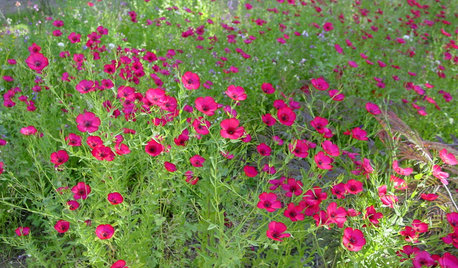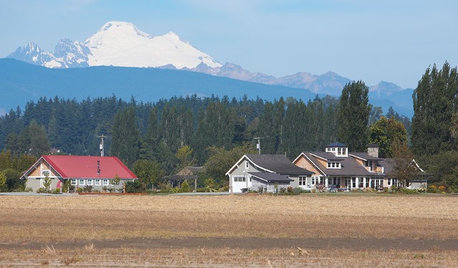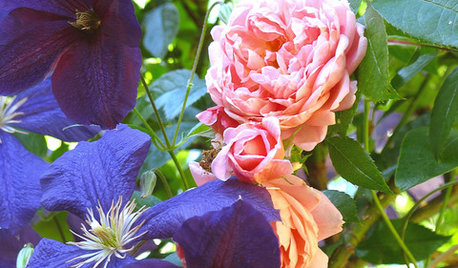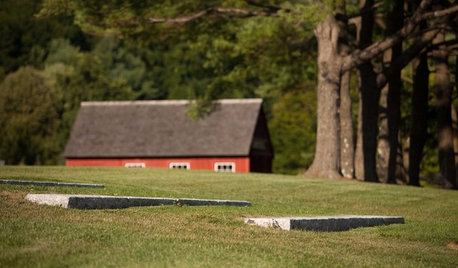Urine fertilizer results
emgardener
14 years ago
Featured Answer
Sort by:Oldest
Comments (76)
tedposey
14 years agolast modified: 9 years agoheather38
14 years agolast modified: 9 years agoRelated Discussions
Urine as fertilizer
Comments (2)http://www.goveganic.net/article217.html#further_resources Fertilizing with human urine...See MoreDrunk man's Urine as fertilizer?
Comments (11)It's going to be pretty harmless :-) In fact, you can source out various recommendations for homemade fertilizer concoctions that include beer straight out of the bottle. They don't really do anything but they don't cause any fatalities either. The alcohol content is negligible and even more diluted once it has gone through your system. I'd be more concerned about the urea content of the urine causing burning of plant tissue if applied directly than I would about the alcohol.....much like the effect of dogs peeing on bushes. For best/safest results, I would the think the compost would be the best target. And yes, the mental image is a bit disturbing :-))...See MoreSustainable Fertilizer: Urine And Wood Ash Produce Large Harvest
Comments (12)Here's the study. Surendra K. Pradhan was interviewed on CBC radio this week. Discussing the benefits of urine as a fertilizer, on public radio - it's a new day. He suggested a time lapse of a few days between applying the urine and the wood ash, to avoid ammonia offgassing. By coincidence, or intuition, we've been tossing urine and wood ashes, and occasionally manure, on our scrubby roadside wild rose hedge in hopes it would grow and help block the sight and sound of traffic. The hedge, which was growing virtually in gravel, is now three times the height and breadth it was ten years ago, blooming beautifully, and admired by visitors. It's maybe not surprising that so much groundbreaking R&D on waste-separating toilets and waste as fertilizer is coming from northern countries like Finland and Sweden. My sister-in-law, an outpost nurse in rocky northern Canada, says heaps of disposable diapers can be seen in the brush around communities from the air as she flies in - there's nowhere or way to bury them. Here is a link that might be useful: study...See MoreFertilizing with human urine, liquid gold
Comments (12)I use it on my leafy greens, like kale. I apply it after harvesting leaves to help it produce new ones. Seems to work pretty effectively, but I don't have a control group of kale plants to compare them to. As a side note, the World Health Organization supports using urine as a fertilizer, noting that the benefits of reduced waste water far outweigh the risk of pathogenic contamination of crops, especially if the urine is freshly collected from the individual. They recommend a one month waiting period between fertilization and harvesting, however. http://www.who.int/water_sanitation_health/wastewater/urineguidelines.pdf Anecdotally, I don't wait a month between fertilizing with urine and harvesting (with my leafy greens, at least) and I have not suffered any ill effects. No smell or residue noticed, either. Article on Urine Fertilization...See Morejessicavanderhoff
14 years agolast modified: 9 years agocyrus_gardner
14 years agolast modified: 9 years agopnbrown
14 years agolast modified: 9 years agocyrus_gardner
14 years agolast modified: 9 years agojessicavanderhoff
14 years agolast modified: 9 years agopnbrown
14 years agolast modified: 9 years agopnbrown
14 years agolast modified: 9 years agoP POD
14 years agolast modified: 9 years agojessicavanderhoff
14 years agolast modified: 9 years agogodsacre
14 years agolast modified: 9 years agojeanwedding. zone 6
14 years agolast modified: 9 years agoopal52
14 years agolast modified: 9 years agoemgardener
14 years agolast modified: 9 years agocyrus_gardner
14 years agolast modified: 9 years agopnbrown
14 years agolast modified: 9 years agojessicavanderhoff
14 years agolast modified: 9 years agopnbrown
14 years agolast modified: 9 years agojessicavanderhoff
14 years agolast modified: 9 years agoUser
14 years agolast modified: 9 years agopnbrown
14 years agolast modified: 9 years agoUser
14 years agolast modified: 9 years agorj_hythloday
14 years agolast modified: 9 years agoemgardener
14 years agolast modified: 9 years agoheather38
14 years agolast modified: 9 years agoglib
14 years agolast modified: 9 years agoheather38
14 years agolast modified: 9 years agopnbrown
14 years agolast modified: 9 years agoglib
14 years agolast modified: 9 years agonaturegirl_2007 5B SW Michigan
14 years agolast modified: 9 years agopnbrown
14 years agolast modified: 9 years agobejay9_10
14 years agolast modified: 9 years agopnbrown
14 years agolast modified: 9 years agobejay9_10
14 years agolast modified: 9 years agoahn-dray-ah
14 years agolast modified: 9 years agoligardener
14 years agolast modified: 9 years agocyrus_gardner
14 years agolast modified: 9 years agopnbrown
14 years agolast modified: 9 years agobejay9_10
14 years agolast modified: 9 years agocatlover_gardener
14 years agolast modified: 9 years agopnbrown
14 years agolast modified: 9 years agocyrus_gardner
14 years agolast modified: 9 years agobejay9_10
14 years agolast modified: 9 years agoMarilyn
9 years agotripleione
9 years agoelisa_z5
9 years agovgkg Z-7 Va
9 years ago
Related Stories

GARDENING GUIDESGet on a Composting Kick (Hello, Free Fertilizer!)
Quit shelling out for pricey substitutes that aren’t even as good. Here’s how to give your soil the best while lightening your trash load
Full Story
GARDENING GUIDESHow to Keep Your Citrus Trees Well Fed and Healthy
Ripe for some citrus fertilizer know-how? This mini guide will help your lemon, orange and grapefruit trees flourish
Full Story
GARDENING GUIDESCommon Myths That May Be Hurting Your Garden
Discover the truth about fertilizer, soil, staking and more to keep your plants healthy and happy
Full Story
GARDENING GUIDESSouthwest Gardener's August Checklist
Manage monsoon effects, remember to fertilize and don't let the heat deter you from planting for fall
Full Story
HOUZZ TOURSHouzz Tour: A Washington Farmstead Celebrates Its Site
Survey the beautiful results of a thoughtful collaboration between an architect, a landscape architect and the homeowners
Full Story
PLANTING IDEASGreat Garden Combo: Rose + Clematis for Small-Space Impact
We all need somebody to lean on. And when a rose supports a climbing vine, the results can totally transform a small garden
Full Story
LANDSCAPE DESIGNProblem Solving With the Pros: Rustic Simplicity in a Country Garden
Editing thoughtfully and adding some magic result in a timeless weekend retreat
Full Story
MOST POPULAR12 Key Decorating Tips to Make Any Room Better
Get a great result even without an experienced touch by following these basic design guidelines
Full Story
GARDENING GUIDESThe Poop Scoop: Enrich Your Soil With Good Old Manure
Get over the ick factor already — this natural super-ingredient for soil has so many benefits, you'll wonder why you ever went chemical
Full Story
EARTH DAYThe Case for Losing the Traditional Lawn
Work less, help the environment and foster connections by just saying no to typical turf
Full StorySponsored
Columbus Area's Luxury Design Build Firm | 17x Best of Houzz Winner!





emgardenerOriginal Author